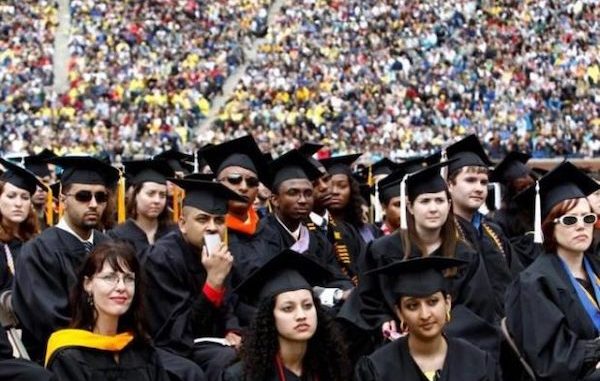
A big relief to students, including those from India
NEW YORK (TIP): Facing widespread opposition led by Harvard and Massachusetts Institute of Technology, the federal government on July 14 abruptly dropped its plans to deport or deny entry to international students at U.S. colleges and universities offering virtual instruction only this fall.
The announcement came during a brief hearing at Boston’s federal courthouse over a lawsuit the two schools filed last week to block the order, a move that drew support from colleges and universities, state and local governments, and the nation’s leading technology companies.
More than 200 public and private institutions of higher education — including all seven other members of the Ivy League — had either filed briefs supporting Harvard and MIT’s effort, or their own lawsuits, including one by the University of California system and another by a group of 19 schools in the West that included Stanford University.
Twenty-six cities, towns, and counties from across the country — from Boston, Cambridge, and New York in the East to Las Cruces, N.M., and Los Angeles in the West — wrote in a brief filed June 13 that, if implemented, the decision would have a “direct and deep impact” on their communities.
Federal Judge Allison D. Burroughs confirmed that both parties had agreed to the decision by the U.S. Immigration and Customs Enforcement (ICE) to rescind its proposal, disclosed a little more than a week ago, and continue the March guideline allowing these students to remain in the country and study remotely.
In the 2018-2019 academic year, there were over 10 lakh international students in the US. According to a recent report of the Student and Exchange Visitor Programme (SEVP), 1,94,556 Indian students were enrolled in various academic institutions in the US in January.
Judge Burroughs said the policy would apply nationwide.
“Both the policy directive and the frequently asked questions would not be enforced anyplace,” she said, referring to the agreement between the US government and MIT and Harvard.
Congressman Brad Scneider said this is a great win for international students, colleges and common sense.
“The administration needs to give us a plan to tackle our public health crisis – it can’t be recklessly creating rules one day and rescinding them the next,” he said in a tweet.
Last week, India also raised with the US its decision to withdraw US visas from foreign students if their universities switch to online-only classes.
The issue was raised by Foreign Secretary Harsh Vardhan Shringla during an online meeting with US Under Secretary of State for Political Affairs David Hale.
Last week, more than 136 Congressmen and 30 senators wrote to the Trump administration to rescind its order on international students.
“This is a major victory for the students, organizers and institutions of higher education in the #MA7 and all across the country that stood up and fought back against this racist and xenophobic rule,” said Congresswoman Ayanna Pressley.
“Taking online classes shouldn’t force international students out of our country,” Congressman Mikie Sherrill said in a tweet.
In their lawsuit, the 17 states and the District of Columbia said for many international students, remote learning in the countries and communities they come from would impede their studies or be simply impossible.
The lawsuit alleged that the new rule imposes a significant economic harm by precluding thousands of international students from coming to and residing in the US and finding employment in fields such as science, technology, biotechnology, health care, business and finance, and education, and contributing to the overall economy.
In a separate filing, companies like Google, Facebook and Microsoft, along with the US Chamber of Commerce and other IT advocacy groups, asserted that the ICE directive will disrupt their recruiting plans, making it impossible to bring on board international students that businesses, including the amici, had planned to hire, and disturb the recruiting process on which the firms have relied on to identify and train their future employees.
This will make it impossible for a large number of international students to participate in the Curricular Practical Training (CPT) and Optional Practical Training (OPT) programs.
The US will “nonsensically be sending…these graduates away to work for our global competitors and compete against us…,” they said.
International students enrolled in academic programs at US universities and colleges study on an F-1 visa and those enrolled in technical programs at vocational or other recognized non-academic institutions, other than a language training programme come to the US on an M-1 visa.
The US is the worst-hit country by the COVID-19 pandemic. The virus has infected more than 3.4 million people and killed over 130,000, according to Johns Hopkins University data.
International travel restrictions in place due to the pandemic have made it increasingly difficult for foreign students in the US to return to their home countries, while those outside America are uncertain if they will be able to travel back.
(With inputs from PTI)




Be the first to comment